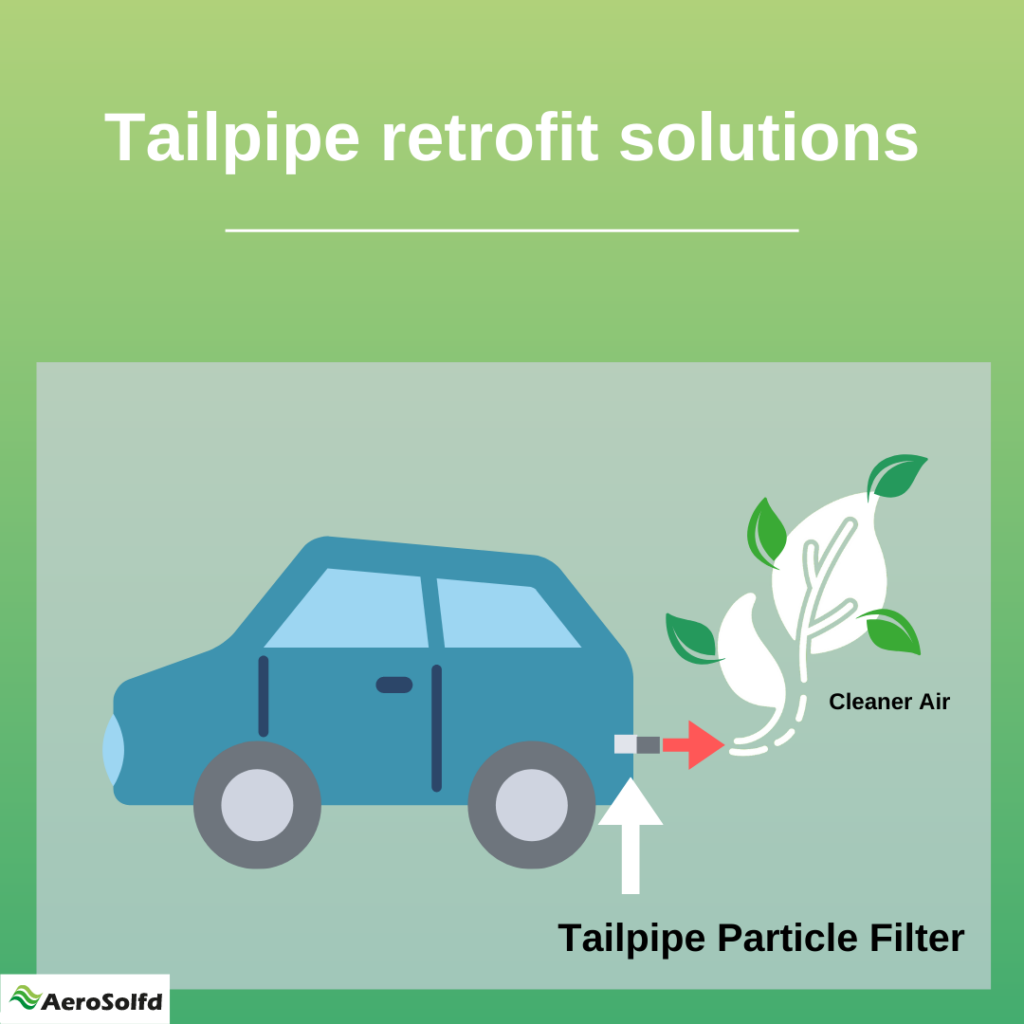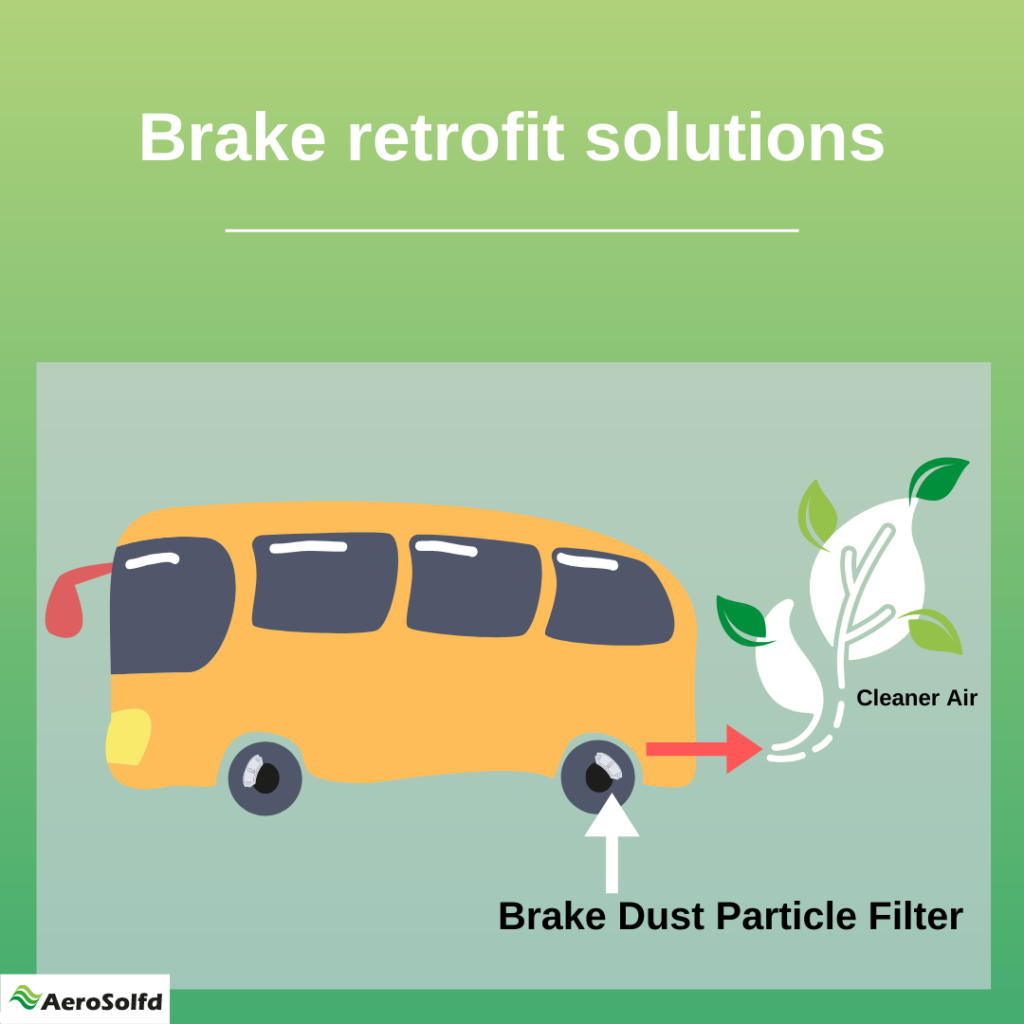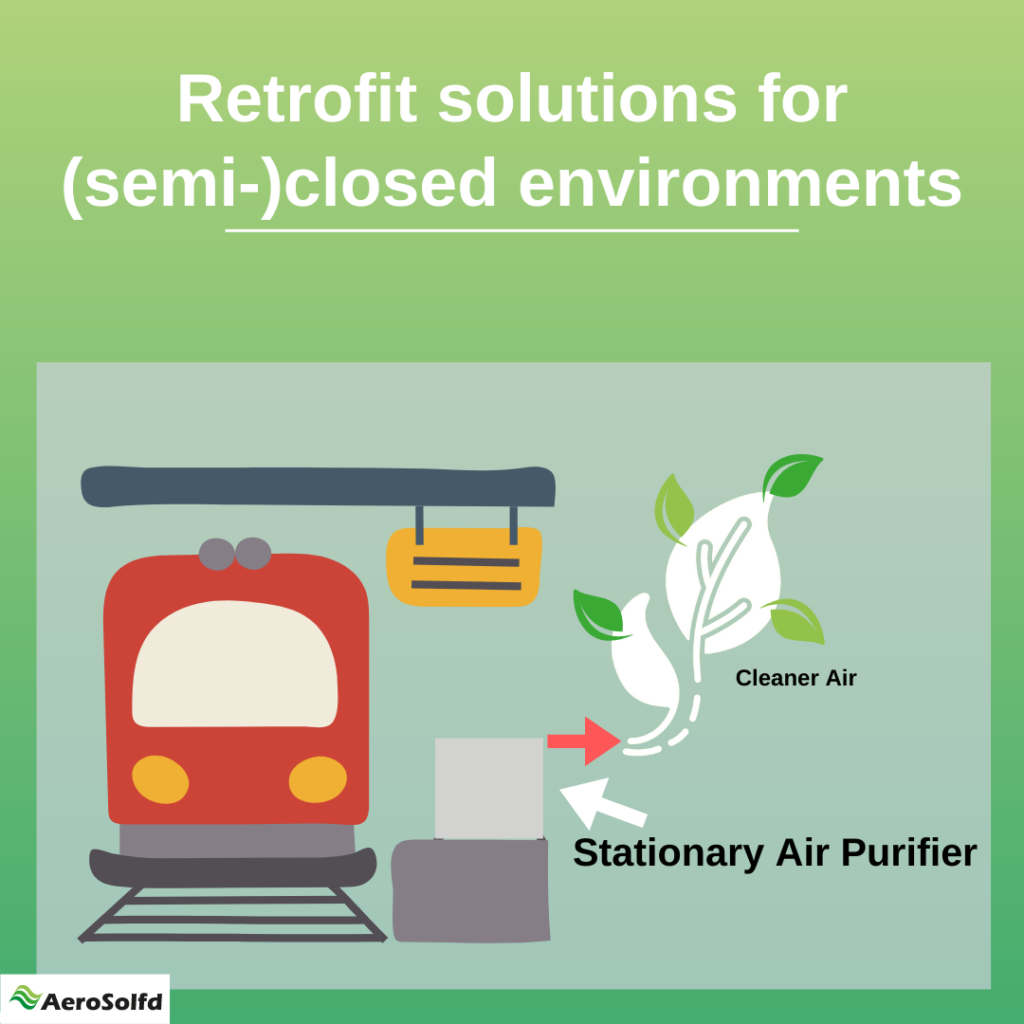Our Concept
Retrofits are key enabling technologies during the transition to zero-exhaust vehicles by electrification and until reduced non-exhaust measures are implemented. Even beyond, brake and closed environment retrofits will continue to play an important role in the electrified road and rail fleet.
In AeroSolfd, three retrofit solutions will be delivered to reduce:
- tailpipe emissions
- brake emissions
- pollution in (semi-) closed environments.
By using these three retrofits, quick wins in the reduction of the overall health and environmental impact of the existing fleets can be realised.
In gasoline combustion engines, fine particles and toxic secondary emissions will be reduced by an innovative Gasoline Particle Filter. NOx exhaust emissions would be minimised by replacing the three-way-catalyst with new equipment. In addition, brake particles of long-lived road transport assets will be reduced by an advanced brake dust particle filter. The reduction of fine particles in closed environments (bus stops, tunnels, metro stations) will be reached by using a specially designed and enhanced stationary air purifier.
During the three-year innovation project, the effectiveness of AeroSolfd’s solutions will be demonstrated in the field and under real driving conditions in lighthouse demo sites across Europe: Valladolid (Spain), Sofia (Bulgaria), Ancona and Fermo (Italy), Lisbon (Portugal), Rovaniemi (Finland), Haifa (Israel), and Biel (Switzerland). This will enable the market introduction of these technologies by 2025 and the transition towards a cleaner and healthier environment in Europe.
Our solutions in detail

Limiting the harmful effects of tailpipe emissions on health and the environment is urgently needed in the transition towards cleaner mobility. In AeroSolfd Project we aim to develop and demonstrate cost-efficient tailpipe retrofit filters. These will replace the underfloor silencer to reduce Particle number (PN)-emissions by large amounts in existing gasoline vehicles of the high mileage urban fleets currently driving without any filter technology (Euro 6c and earlier). As a result, the number of ultrafine particles emitted per vehicle will decrease

Brake dust is considered particularly toxic. Not only vehicles but also buses, trams, and trains emit large amounts of emissions from brakes, tyres, and rail-wheel contact. Therefore, an existing and proven passive brake dust particle filter (BDPF) concept developed by MANN+HUMMEL for passenger vehicles will be modified for bus and commercial vehicle brake applications. Eco-friendly circular design approaches will be used. This solution, which is specially designed for long-lived public road transport assets like buses, will reduce brake emissions and capture brake dust at the source.

Fine particles in (semi-)closed spaces like metro stations, tunnels and bus stops pose a threat to human health. Short- and long-term exposures to these air pollutants cause for instance harmful health effects on public transport users and workers. To tackle these challenges, we will provide railway, metro and bus companies or operators with an effective stationary air purifier developed by MANN+HUMMEL. By combining the latest technologies and simulation tools for smart applications, these harmful emissions will be lowered and as a result, the air gets cleaner.

